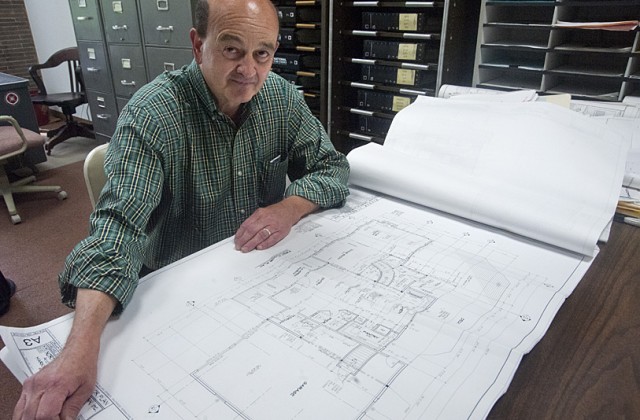Building Inspector Watches Over Safety of Norfolk Homeowners
By Kurt Steele
States legislate important issues affecting their citizens in different ways and have a wide variety of laws controlling how buildings are built or remodeled so they are safe. Some have statewide building codes based on a strong national model code. Others have weak codes or allow local counties to write their own. Enforcement also ranges from strong to weak.
In that regard, Texas’s very lax system has been in the news recently. Books are for sale there that list places where you can build a house or factory with virtually no building code requirements.
“Connecticut is fortunate to have a strong, statewide code,” says our local building official, Mike LaRosa. Under state law, a building permit is required for new buildings, substantial alterations to an existing building and changing a building’s occupancy.
Examples of alteration include: finishing a basement or attic for habitable use; constructing decks or storage sheds; building a swimming pool more than 24 inches in depth; re-roofing; replacing doors or windows; installing new siding; building a retaining wall more than three feet high or a fence more than six feet high; doing other than minor, routine maintenance on electrical, gas, mechanical or plumbing systems; and installing supplemental heating systems such as wood or pellet stoves or fireplace inserts.
Building permits are issued by the town, and homeowners can apply for the required ones at LaRosa’s Town Hall office. The contractor, if one is involved, will generally obtain all required permits. LaRosa says, “Itís my job to validate that the contractor has the proper trade license, current Home Improvement Contractor’s registration and required insurance before issuing a building permit. All permits require a minimum of one inspection and final closure by me. My work helps protect the homeowner.”
“No one should work with a contractor who says he won’t permit the job,” LaRosa adds. “Doing that leaves the homeowner in a potentially unsafe situation.” Scott Reeve, a local Norfolk contractor, says, “The state building code is an important part of keeping all buildings in our town safe. As a contractor, I make sure that we obtain all required permits.”
Besides safety, there are other reasons for obtaining required permits. Property insurance may be voided for a fire if a required permit was not obtained. The fire marshal or insurance adjuster, for example, could discover that no permit was obtained for the installation of a wood stove that caused a fire.
Another reason is that the sale of your house may be impeded if you are unable to represent to the purchaser that all improvements you made were properly permitted under state law. Similarly, a potential purchaser may lose interest if there are open permits or recorded violations on file in the Building Department.
Norfolk Selectman Leo Colwell, Jr. says, “I’m happy that our statewide code protects property owners and the whole town and is professionally enforced by our local building official.”
Photo by Bruce Frisch.

